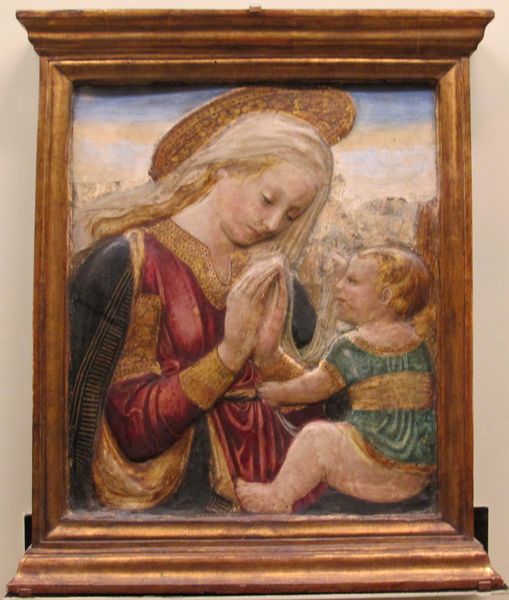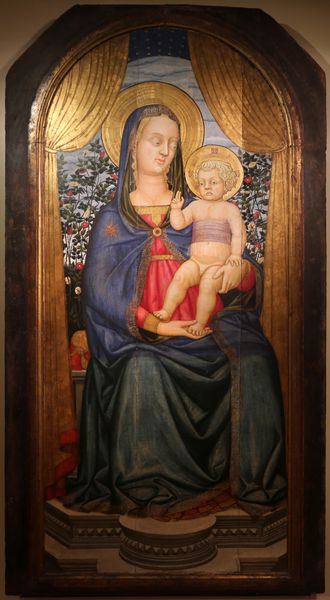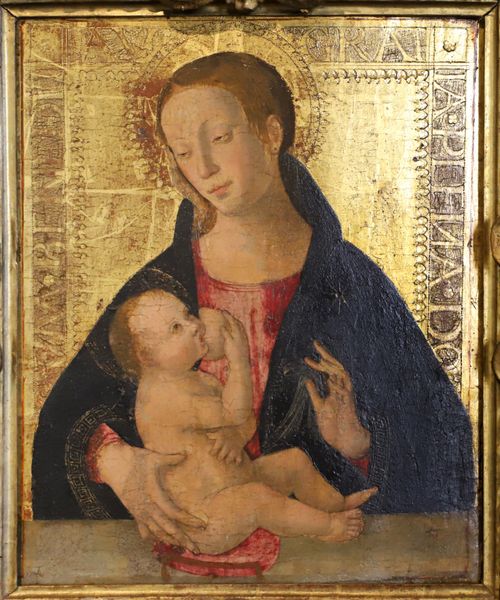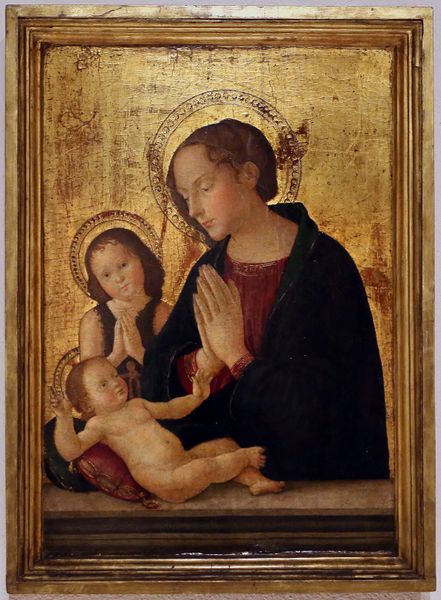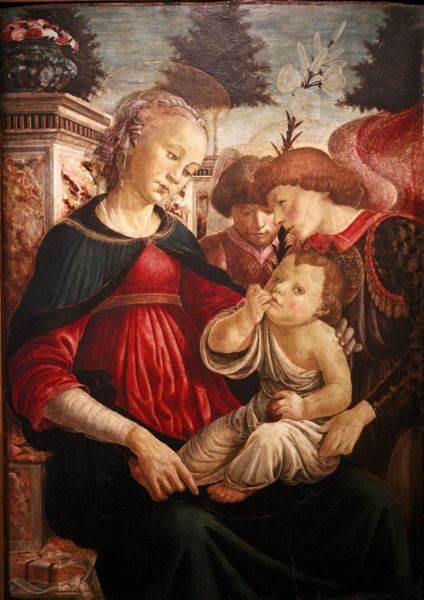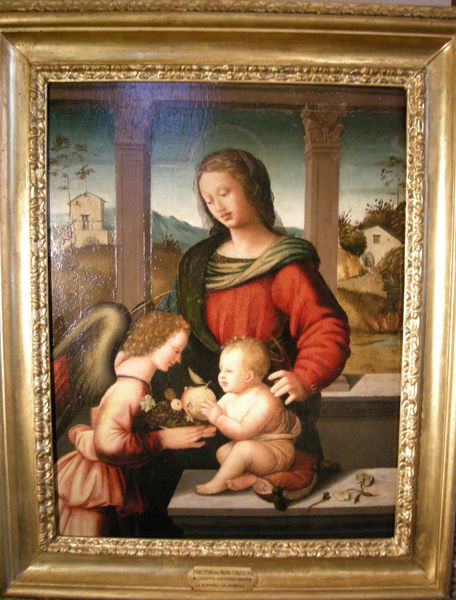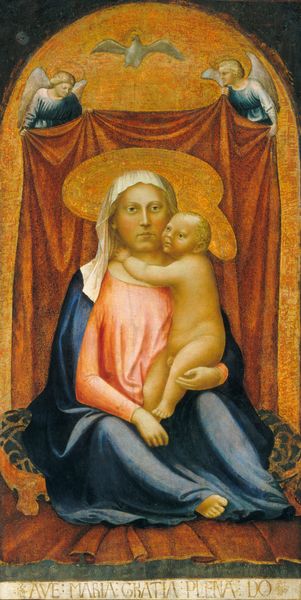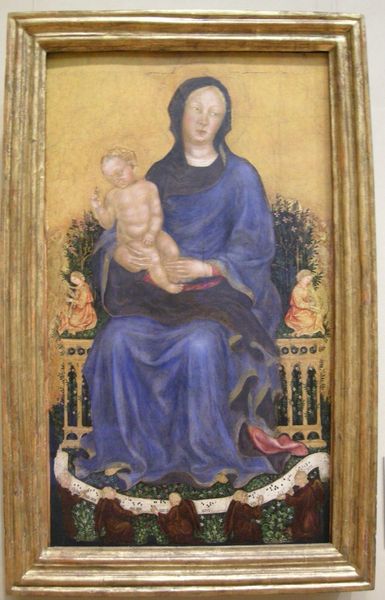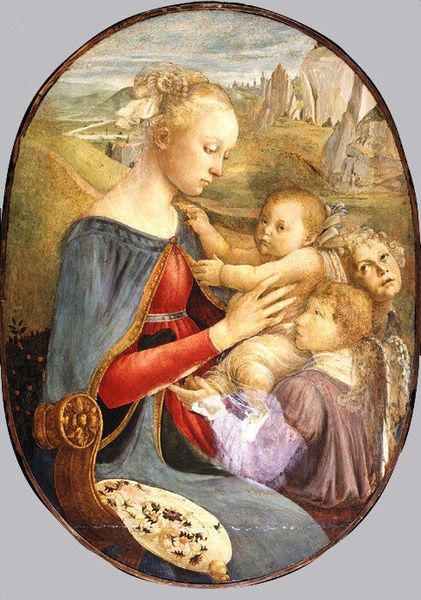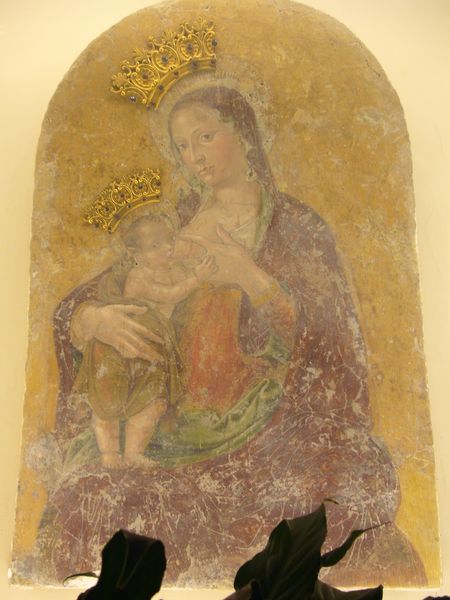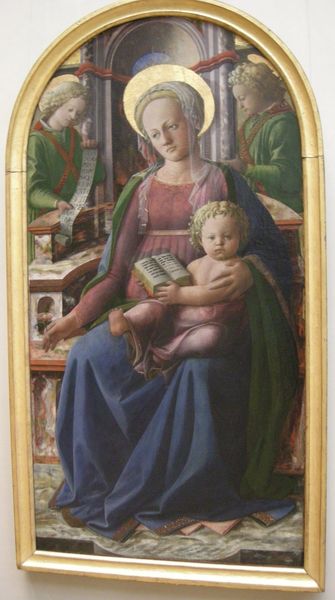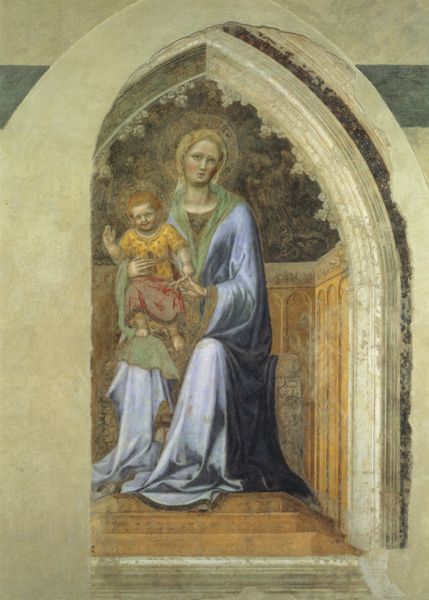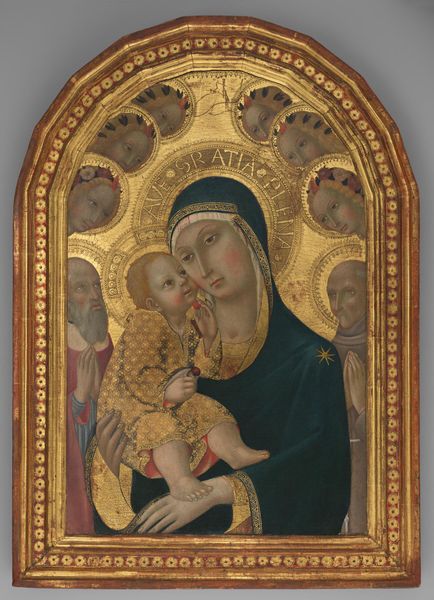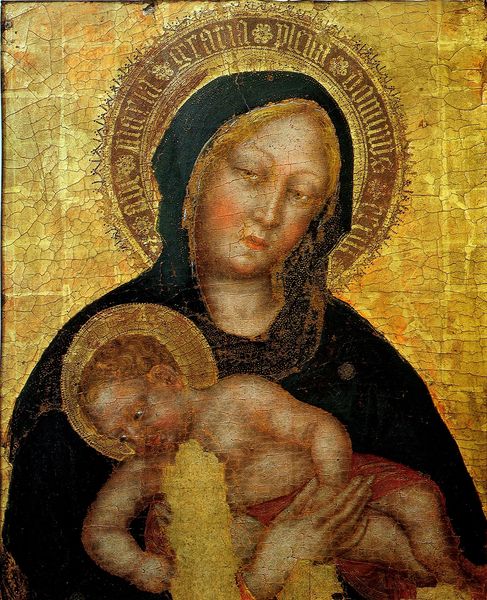
tempera, painting
#
portrait
#
tempera
#
painting
#
oil painting
#
christianity
#
history-painting
#
italian-renaissance
#
portrait art
#
virgin-mary
#
angel
#
christ
Copyright: Public domain
Filippo Lippi made this "Madonna and Child" using tempera on panel, a common technique in the Early Renaissance. The panel provides a smooth, rigid surface ideal for the meticulous detail Lippi achieves, while the use of tempera, made from egg yolk, allows for fine lines and brilliant colors. See how Lippi has used the tempera to build up layers of translucent glazes, creating a luminous quality, especially noticeable in the Madonna's robes and the delicate skin tones of mother and child. The gold leaf background, painstakingly applied, not only adds to the sacredness of the image but also reflects the wealth and patronage of the time. Consider the social context: workshops were the base unit for artistic production at the time. Assistants would prepare the panels, mix pigments, and apply the gold leaf, allowing the master to focus on the central figures. Paying close attention to the materials and the making reveals so much about the culture that produced this work.
Comments
No comments
Be the first to comment and join the conversation on the ultimate creative platform.
